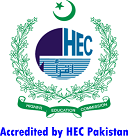German Strategic Policy after the Cold War (1991-2017)
DOI:
https://doi.org/10.56384/jes.v40i1.334Abstract
German Strategic Policy (1991-2017) changed because of several factors, which included the assertive behaviour of Russia, incoming refugees, the threat of terrorism, Brexit, the waning interests of the United States in Europe, and escalating climate change problems. The German Strategic Policy that spanned over two decades focused on developing and modernizing military hardware. This requirement in fact can be observed by analysing the recent shifts in German policies and politics at large. These shifts are largely based on the German strong economy based on free trade and policies of economic development. Many scholars argue a facet of economic strength is reflected in military power. This paper analyses German defence policy change and discusses factors that led to changes in German strategic position in the EU as a strong military power.















